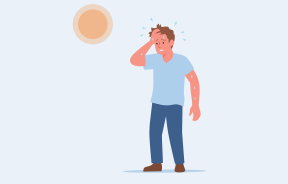Do You Really Need Antibiotics For That Sore Throat? Doctors Urged To Curb Unnecessary Use Of Bacteria-Fighting Meds

The American Academy of Pediatrics (AAP) Committee on Infectious Diseases recently warned doctors and parents that children should receive antibiotics only for bacterial infections, not viral illnesses. Children with ear infections, runny noses and sore throats should be evaluated fully before being given antibiotics, the AAP said Monday in a report, noting the importance of using antibiotics "judiciously."
“People tend to not recognize how big of a problem this is,” Dr. Theoklis Zaoutis, a member of the AAP as well as a specialist at the Children’s Hospital of Philadelphia, told Reuters. At the start of Antibiotic Awareness Week this week, The Lancet Infectious Diseases published an editorial article holding commentary from several medical experts, stating that “a crisis looms… In the very near and rapidly approaching future, the wonder drugs of the 20th century, antibiotics, may cease to be useful.”
Because bacteria can develop resistance to antibiotics, it’s important to only employ them for specific bacterial infections. “Many people have the misconception that since antibiotics are commonly used that they are harmless,” Dr. Lauri Hicks of the Centers for Disease Control and Prevention said in a press release. “Taking antibiotics when you have a virus can do more harm than good.” The CDC states that some 2 million Americans are infected with antibiotic-resistant bacteria per year, and 23,000 die because of the bacteria’s immunity to medication. The AAP members state that using antibiotics at any time contributes to the risk of resistance. “Antibiotic resistance…has been a concern for years and is considered one of the world’s most critical public health threats,” the CDC notes. “Antibiotic resistance is also an economic burden on the entire healthcare system. Resistant infections cost more to treat and can prolong healthcare use.”
On top of that, taking antibiotics unnecessarily – when there is no bacterial infection present – can lead to nasty side effects like diarrhea or stomachache, as well as the possibility of an allergic reaction. Other possible side effects are nausea and vomiting. The AAP recommends for children and parents to wait it out if symptoms like a runny nose or sore throat occur, because upper respiratory ailments are usually caused by viruses. Unless the sore throat is strep throat, antibiotics are often unnecessary.
“You want to use the antibiotic that has the narrowest spectrum, meaning it will kill the germs that are causing the infections but not have collateral damage on all the other bacteria within our bodies,” Dr. Zaoutis told Reuters. “Talk to the doctor and say, ‘Do I really need that antibiotic? What are the risks and benefits of my child taking an antibiotic?”
Published by Medicaldaily.com



























